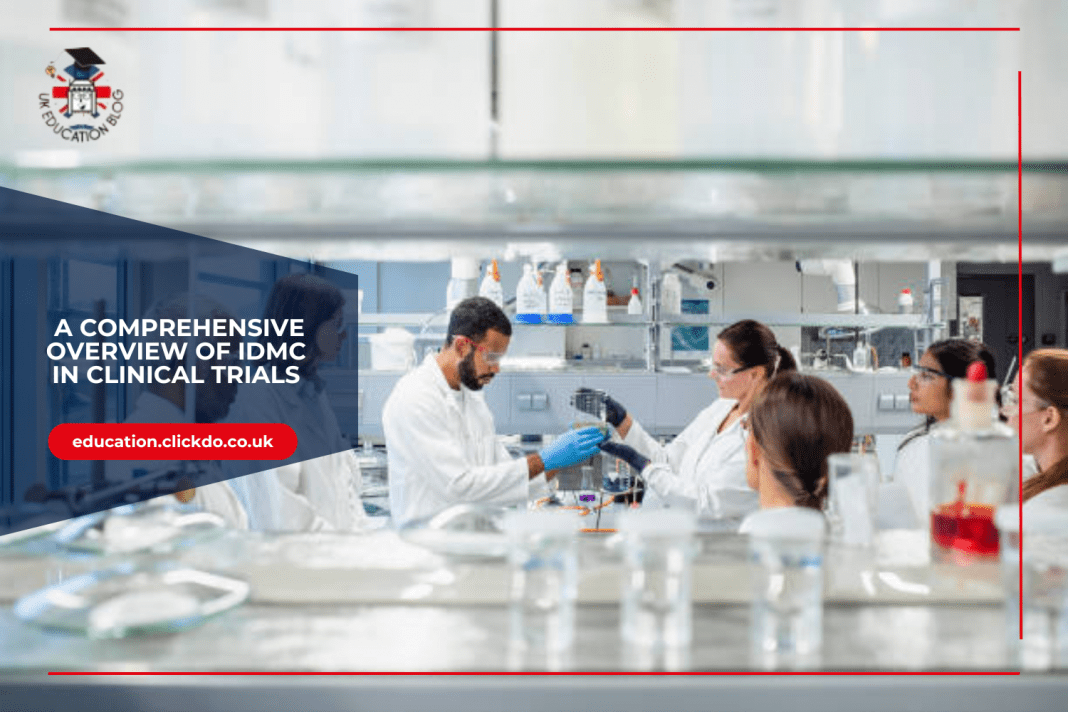Ensuring patient safety while generating reliable, high-quality data is paramount during any clinical trial.
The Independent Data Monitoring Committee (IDMC) is a critical part of this process.
In this guide, we’re going to share a comprehensive overview of what an IDMC is, as well as their roles, responsibilities, and relevance in clinical trials.
What is an IDMC?

An Independent Data Monitoring Committee (IDMC) is a group of experts hired as an external body to monitor a clinical trial’s safety, progress, and efficacy.
The committee is designed to operate independently of the sponsor, investigators, and other study stakeholders to minimise bias and ensure that participant welfare is always a top priority.
These committees are particularly crucial for large, multi-center trials or studies that involve vulnerable populations or high-risk interventions, such as investigational drugs, complex medical devices, or experimental therapies.
Roles and Responsibilities
The primary responsibilities of an IDMC can be broken down into different sections and grouped into the following areas:
1. Safety Monitoring

Participant safety is crucial, and IDMCs will review adverse events (AEs) and serious adverse events (SAEs) to ensure that the risks to participants always remain acceptable. If necessary, they may recommend modifying protocols or even halting the trial if the risks outweigh the potential benefits.
Another important part of their role is risk-benefit analysis. They will conduct regular evaluations of whether the intervention offers a favourable risk-benefit profile.
2. Efficacy Monitoring
IDMCs will also analyse data at predetermined intervals during the trial to assess whether the intervention is showing efficacy compared to control groups. If results are overwhelmingly positive, they may even recommend early trial termination.
3. Ethical Oversight
The committee will ensure that the trial adheres to all ethical principles. They must safeguard the integrity of the trial by ensuring data confidentiality and addressing any ethical concerns.
4. Protocol Adherence
IDMCs will verify that the trial is conducted as per its approved protocol. This is done to minimise deviations during the trial.
5. Recommendation to Sponsors
Lastly, they will provide actionable recommendations based on interim data, including whether to continue, modify, or terminate the study at any point.
Who is in an IDMC?

An IDMC typically includes professionals with diverse expertise. This helps to ensure a well-rounded evaluation of the trial. As a result, the committee could be made up of any of the following:
1. Medical Experts
Physicians or medical specialists from relevant fields, who can provide insight into patient care and safety concerns.
2. Biostatisticians
Statisticians analyse interim data, ensuring the results are valid, unbiased and robust.
3. Ethicists
Ethicists, as the name suggests, guide the committee on adherence to ethical standards and participant welfare.
4. Other Specialists
Depending on the nature of the trial, other experts like pharmacologists, epidemiologists or patient advocates may also be included.
IDMC’s Role in the Clinical Trial Lifecycle
The IDMC will be involved in several phases of a clinical trial process, including:
1. Planning Phase
During the trial design, the IDMC’s roles and responsibilities are defined in the charter, a document outlining:
- The scope of the IDMC’s authority
- Meeting schedules
- Protocols for handling data and communicating recommendations
2. The Conduct Phase
As the trial progresses: The IDMC holds regular meetings to review safety data and interim results. Decisions are made collaboratively, with all findings kept confidential.
3. The Termination Phase
At the trial’s conclusion, the IDMC provides a final assessment of the intervention’s safety and efficacy.
Advantages of an IDMC
There are several key benefits to having an external IDMC involved in a clinical trial, and these are:
- Enhanced safety: An IDMC acts as a safeguard, ensuring risks are minimised, and participants are protected at every stage of the trial
- Improved credibility: By operating independently of the trial organiser, the IDMC enhances the credibility and integrity of the results through critical thinking.
- More efficient decision-making: With the expert oversight of the committee, decisions on trial continuation or modification are timely and well-informed
The Challenges faced by IDMCs
Despite their importance and the clear benefits, IDMCs still face several key challenges, as outlined below:
- Complexity of data: Interpreting interim data without complete context can be tricky. Therefore, it requires expertise and careful judgment
- Ethical dilemmas: Balancing the needs of current participants with the potential benefits for future patients can also be challenging and requires a clear and ethical mind
- Conflict of interest risks: Ensuring true independence from sponsors and investigators is critical, yet sometimes tricky, depending on the nature of the study and those involved
- Confidentiality concerns: IDMCs must maintain strict confidentiality to prevent bias while ensuring transparent communication with stakeholders at all times
Key Considerations in IDMC Operations
There are also several key points that the IDMC must consider throughout the duration of the trial:
1. Blinded vs. Unblinded Data
IDMCs often review unblinded data to assess efficacy and safety trends accurately. However, when doing so, they must adhere to strict confidentiality to prevent biases affecting the trial.
2. Interim Analysis
These predefined analyses are pivotal in determining the trial direction, and the IDMC will evaluate whether the trial should:
- Continue as planned
- Be stopped early for efficacy or safety concerns
- Be modified to address emerging trends from interim data
3. Stopping Rules
Stopping rules must be set out early on to provide the exact criteria for discontinuing the trial, such as:
- Clear evidence of harm or lack of efficacy
- Overwhelming benefit observed in one arm
4. Adaptive Designs
In adaptive clinical trials, IDMCs will also play a significant role in assessing data and recommending changes to the trial design. For example, they may suggest adjusting sample sizes or switching interventions.
3 Examples of IDMC Interventions
Although we’ve already touched on the responsibilities of IDMCs, let’s now take a look at these contextually by sharing some examples of when the committee might get involved.
1. Early termination for efficacy
In a life-saving drug trial, the IDMC may recommend stopping the study early if interim data show overwhelming efficacy. This allows for broader patient access.
2. Safety-driven modifications
If adverse events are observed in one of the trial arms, the IDMC may suggest dose adjustments or changes to eligibility criteria.
3. Halting due to futility
If interim data indicates that there is no likelihood of achieving the desired results from a new therapy, the IDMC might recommend discontinuation to save resources and protect participants.
Author Profile

- Passionate content creator, contributor, freelance writer and content marketing allrounder.
Latest entries
 careerJanuary 22, 2026Preparing for FRS 102: From Classroom to Career
careerJanuary 22, 2026Preparing for FRS 102: From Classroom to Career learningDecember 17, 2025How to make School Handouts more Accessible for all Learners
learningDecember 17, 2025How to make School Handouts more Accessible for all Learners learningDecember 15, 2025Why Critical Thinking and Evaluation Skills Matter in Psychology Revision
learningDecember 15, 2025Why Critical Thinking and Evaluation Skills Matter in Psychology Revision ed techNovember 7, 2025The Importance & Benefits of Titrators in Modern Science Classrooms
ed techNovember 7, 2025The Importance & Benefits of Titrators in Modern Science Classrooms







